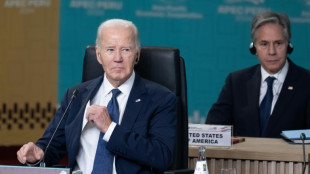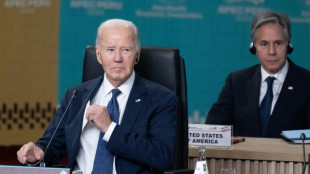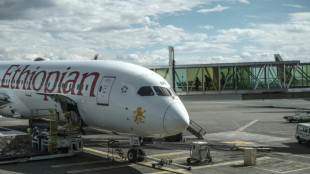

China lockdown, chip shortage hit Nissan profits
Japanese car giant Nissan said on Thursday that net profit sank nearly 60 percent in the three months to June as pressures including a lockdown in Shanghai and chip shortages weighed on business.
The firm, which in May reported a positive full-year net profit for the first time in three years, said it logged a net profit of 47.1 billion yen ($347 million), down 58.9 percent on-year.
The slump was also the result of a one-time boost in the first quarter of last financial year when Nissan unloaded Daimler sales.
But the firm said it was facing a range of headwinds.
"During the first quarter, the extremely challenging business environment put pressure on earnings," Nissan said in a statement.
"Production was constrained by the Shanghai lockdown caused by spread of the new coronavirus, and semiconductor supply shortages, while external factors such as soaring raw material prices and logistics costs also intensified their impact."
"The pandemic understandably remains a priority challenge," chief operating officer Ashwani Gupta told reporters.
"At the same time, we experienced tailwinds with favourable foreign exchange rates," he added, referring to the yen's recent slump against the dollar, which helps inflate overseas profits for Japanese firms.
The firm left its full-year forecast unchanged, projecting a net profit of 150 billion yen.
That would be a 30.4 percent slump, however, from the previous year's 215.5 billion yen.
Operating profit was down 14.2 percent to 64.9 billion yen, but that beat analyst estimates, according to Bloomberg.
The firm was on a rollercoaster even before the disruption caused by the pandemic and the conflict in Ukraine.
It had been struggling with increasing sales costs, and is currently implementing a plan involving slashing models, cutting costs and restructuring operations.
"Nissan is making progress after an excessive expansion policy in North America in the past that was a factor causing it to lose money," said Satoru Takada, auto analyst at TIW, a Tokyo-based research and consulting firm.
"Profits declined year-on-year relative to the robust rebound in last year's April-June quarter, when there was a recovery from the pandemic's impact and cost-cutting efforts," Takada told AFP ahead of the earnings report.
"Nissan's challenge is how to minimise the impact of the chip shortage and sell attractive new cars, including those recently released," he said.
The automaker has also been buffeted by the saga surrounding its former chief Carlos Ghosn.
The one-time auto tycoon was detained in Japan in 2018, accused of financial misconduct charges that he denies, but jumped bail and fled to Lebanon the following year.
A Tokyo court in March handed a six-month suspended sentence to former Nissan executive Greg Kelly over allegations that he helped his boss attempt to conceal income.
The company had pleaded guilty in a separate case, and was ordered to pay a fine of 200 million yen.
In April, French authorities issued an international arrest warrant for Ghosn, who has lived in Lebanon since his daring getaway from Japan, on allegations including corruption, misuse of company assets and money laundering.
E.Schmitt--MP




